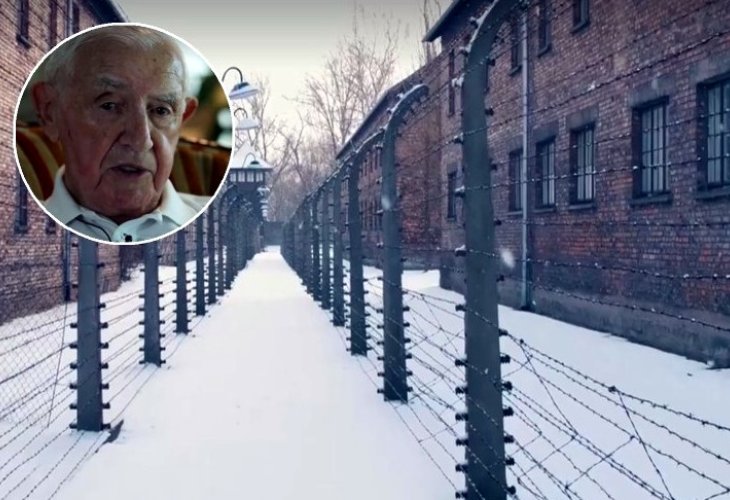The Holocaust
Surviving Auschwitz — The Remarkable Escape of David S. Wisnia
A personal account of courage, trauma and the power of song in the darkest times

Holocaust survivor David S. Wisnia shared how he managed to escape the clutches of the Nazis after spending roughly three years in the Auschwitz death camp. “When I arrived at Auschwitz, right after receiving the number tattooed on my arm, I looked at the SS man standing before me, and my eyes landed on his belt — on it was written in German: ‘Gott mit uns’ (‘God is with us’). I said to myself, ‘God is not with you, and I’m going to prove it.’”
Wisnia described the brutal weeks that followed in the camp. “My job was to collect the corpses. One night, about two weeks after hauling bodies, the block commander asked: ‘Who can sing?’ Of course everyone knew I could sing, and they pointed at me. I went with him and performed, and that turned me into a prisoner with a privilege.”
Decades after surviving the camp, Wisnia became a world-renowned cantor. One of the most important songs he later sang, he says, is a Polish song about Auschwitz. “In December 1944, the Nazis began evacuating Auschwitz. I was on one of the transports, and when we arrived at Dachau, I understood that I would not survive there. In Auschwitz I had certain privileges, but there nobody knew me. At that point I began looking for ways to get out of Dachau.”
“Suddenly, out of the fire, I saw him”
Wisnia decided he would do whatever it took to escape the infamous camp. “It was while they were clearing the trucks full of bodies to the pits outside the camp. Suddenly I found a shovel in one of the vehicles and knew this was my chance.
“I walked forward toward the fire where we burned the bodies, not knowing where I was really going. I heard roaring tanks — and that whole convoy stopped for me. Out of the flames I suddenly saw him — James L. Walker, from South Carolina.”
The American soldiers who had appeared out of nowhere handed Wisnia a uniform, and he quickly climbed into their tank. “When I got home I found that my family had been killed, but fortunately I later learned that my father had resisted them and they even found a pistol in his possession. They killed my entire family, but they couldn’t break my spirit.”
From there Wisnia rebuilt his life, formed a happy family, and his grandson, who followed in his footsteps as a pianist, composed his songs from Polish into English.

